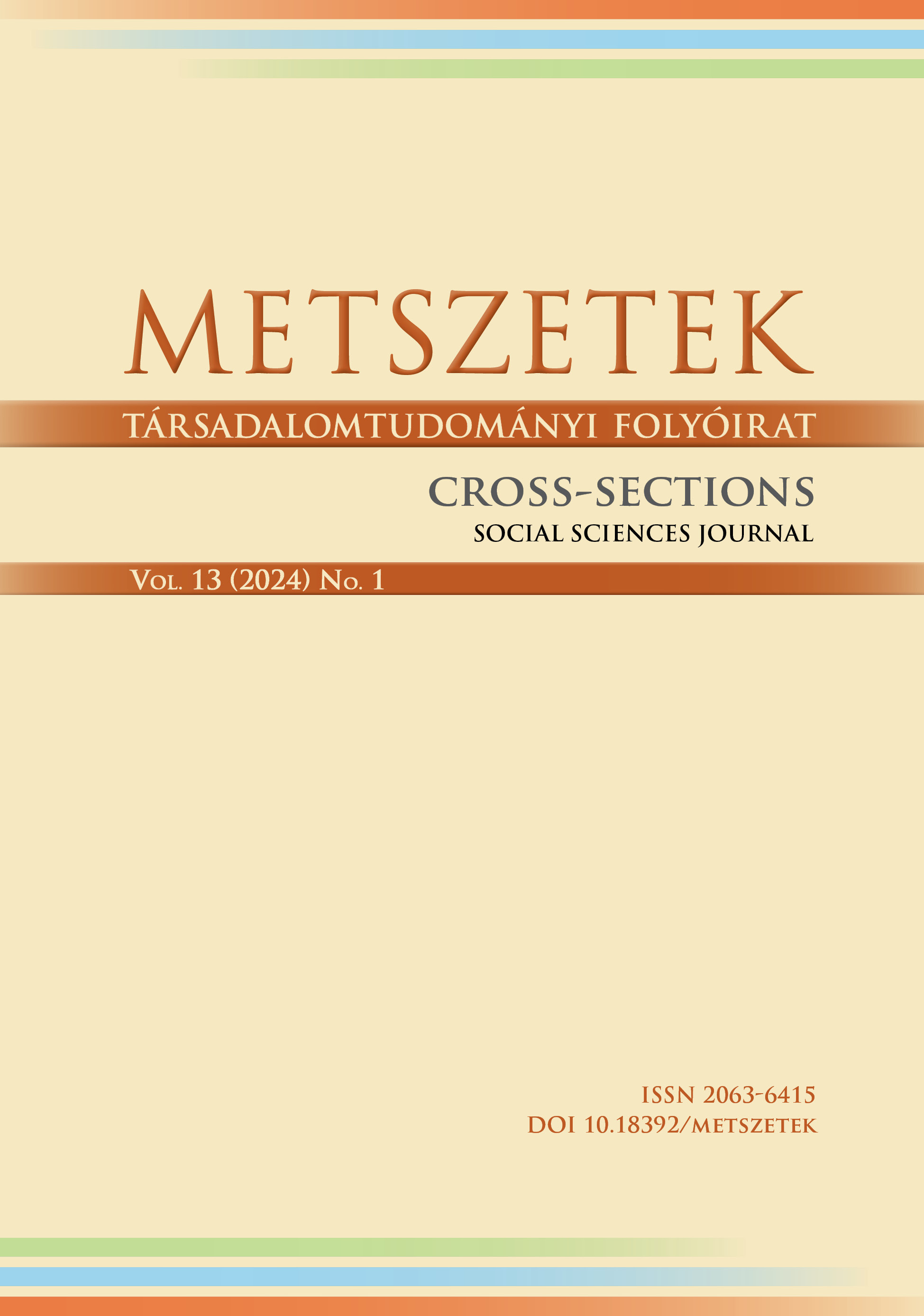Vol. 13 No. 1 (2024)
Full Issue
##issue.tableOfContents##
CLOSE-UP
-
Reframing of Particular Trust
5-27Views:155The paper strives to reconsider the theory of particular trust, i.e. one’s trusting feelings towards her/his most intimate relatives, friends, and personal relations. By doing this, at first, the paper sheds light on two distinct interpretations of particular trust in the literature. One of these approaches addresses particular trust as a kind of core disposition of the self, and it describes how one’s trust towards her/his bonding relations establishes the given subject’s generalized trust towards others, in a broad sense, to people as such. The other interpretation argues that particular trust is important for group-level social dynamics. It claims that if members of close-knit and exclusive groups, dominated by particular trust, are interacting only with each other, and avoiding out-group relations, then broader social cooperation and collaboration are constrained, social integration and cohesion are limited, and on macro level there is an unfolding distrust. As it seems, the above-described readings of particular trust are contradictory. The current paper stresses that just one of these interpretations is coherent and consistent – the first one.
pdf (Hungarian)153 -
Parents’ school volunteering in the interpretation of teachers in a disadvantaged region of Hungary
28-48Views:278In the international literature, there are many studies dealing with the voluntary work of parents at school, but there is little research on this in Hungary. In our study, we examine the volunteering of parents through the interpretation of teachers in three disadvantaged counties of Hungary, using a qualitative interview method. The research population was the teachers of primary and secondary schools, and the interviewed teachers were selected by multi-stage, stratified sampling. We included 38 interviews in the analysis, in which the voluntary work of the parents appeared. The interviews were analysed by manual and machine hybrid coding. According to our results, teachers also considered participation on request or under pressure as volunteering. “Real” volunteering is hardly present, and parents are less likely to initiate assistance on their own. Parents are typically occasional volunteers, and mostly the members of the parents’ work community participate in regular volunteer work. According to the teachers, the voluntary work of parents is indispensable in the life of the school, so in our opinion it would be important to promote it and to motivate parents to participate more in school life.
pdf (Hungarian)133 -
An example of good practice for integrating youth into the labor market in Hungary
49-66Views:375While there are positive trends in economic growth in the EU Member States, there are also challenges that are a long-term concern. These include, for example, unfavourable labour market dynamics, leading to an increase in social inequalities (Artner 2018). The European Economic and Social Committee stresses that young people can play an important role in addressing inequalities and socio-economic challenges, contributing to the future stability and prosperity of the EU (European Economic and Social Committee 2021). To this end, policies should support young people’s education, training and active participation in the labour market. The Lost Millennials project, coordinated by the HÉTFA Research Institute, and the project “Incorpora - for responsible employment”, implemented by the Maltese Care Nonprofit Ltd. and its partners, will be presented and their results analysed, while the study will also review national and international trends in the NEET group.
pdf (Hungarian)275 -
Family perspectives for young people growing up in child protection care
67-87Views:285The study examines the factors of family perspectives among vulnerable youths – children and youth living in alternative care – with qualitative method. The target group is children who live in the Hungarian child protection system as juveniles. Children and young people experiencing different family substitute arenas may result in various family perspectives. These family perspectives are examined within a theoretical framework of family sociology and human ecology.We used a complex approach to describe the experiences and changes of these structural and family-replacer dimensions together with their impacts on the family perspective. We have found that the family perspectives of the young people are diverse and their narratives about their visions of the future are often linked to dominant family and life events previously experienced in family milieus and forms of care. At the same time, the complexity of life events and the diversity of future plans are not necessarily reflected in the institutional background and the professional-young relationships that could support young people’s autonomy. Based on the interviews, the family and community levels of the human ecology model can also be a significant factor in young people’s family perspectives, so cooperation between family and community, institutional actors can be one of the keys to providing adequate support for young people. In order to realize future plans for family perspectives, professionals need to focus more on individual needs and the diversity and variability of family perspectives.
pdf83
REVIEW
-
A töredezett magyar társadalom esélyei
88-93Views:159Takács Erzsébet (2018): A szolidaritás alakváltozásai: Az együttműködés lehetőségei és gátjai Magyarországon.
Budapest, Magyarország: Napvilág Kiadó (2018), 217 oldalpdf (Hungarian)153






